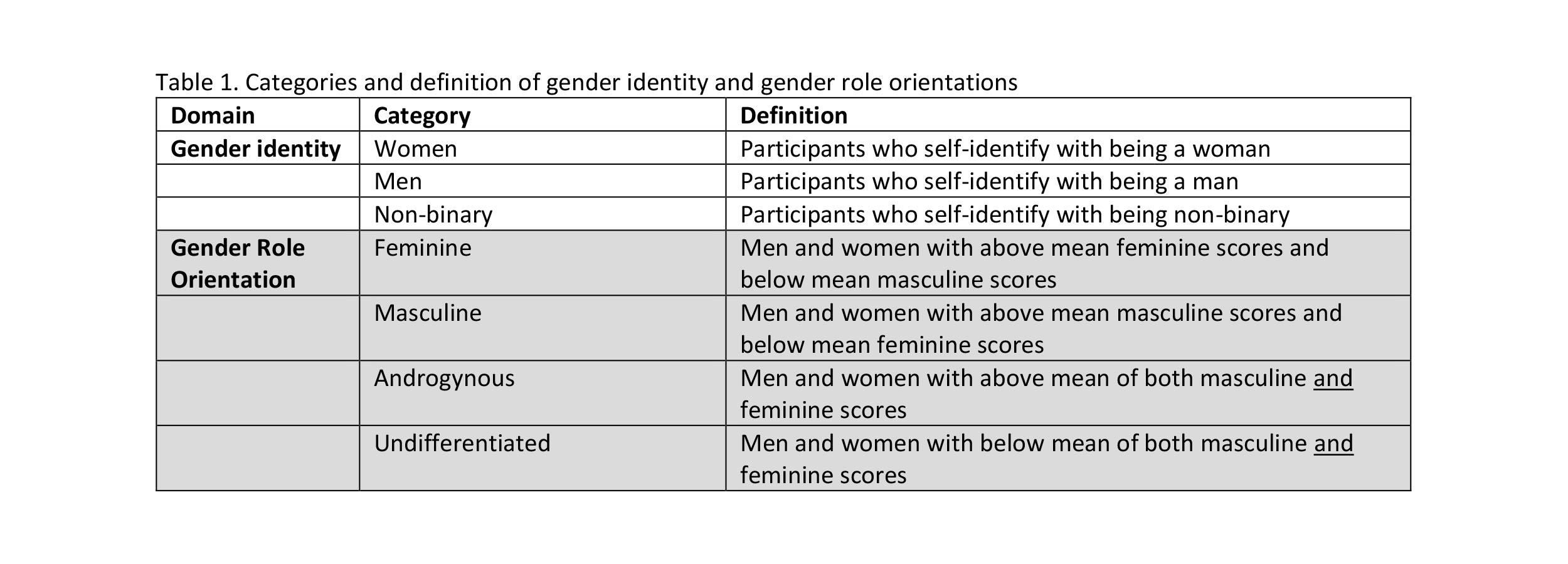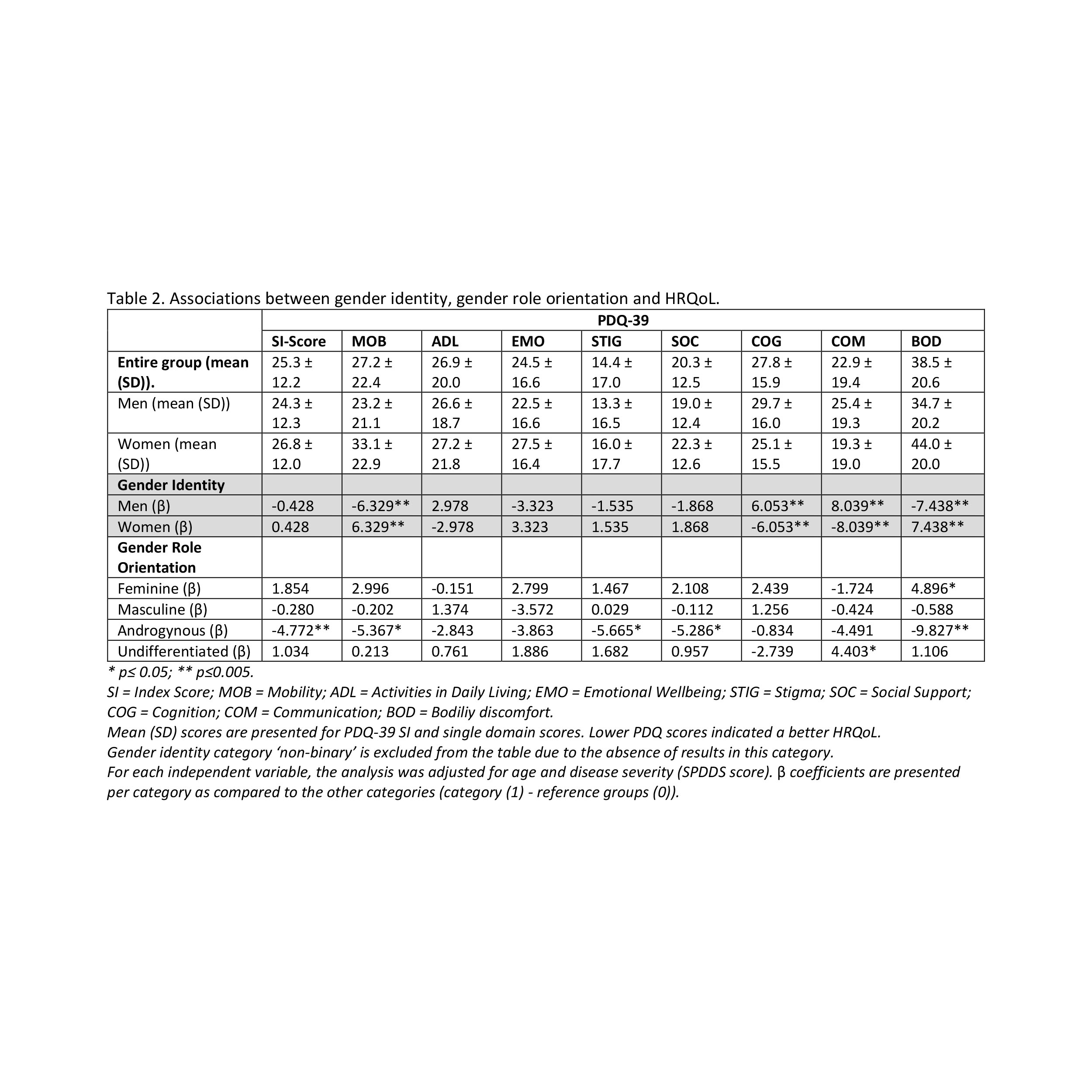Objective: To assess the associations of gender identity and gender role orientation with health-related quality of life (HRQoL) among persons with Parkinson’s disease (PD).
Background: Gender is a multilayered construct with several dimensions. Self-reported gender identity is most commonly used when studying gender differences in HRQoL. The influence of gender role orientation (masculine and feminine traits) on HRQoL is, instead, rarely considered.
Method: Persons with PD in the Netherlands were sampled from the PRIME-NL cohort. Participants were surveyed between March 2020 and February 2021. To assess the association of gender identity or gender role orientation [table 1] with HRQoL, we collected general demographic data, PD characteristics (PDQ-39 and SPDDS) and gender-related variables (BSRI). We assessed associations using t-test and analysis of variance and we performed multiple regression analyses.
Results: In total, 299 people completed the survey (gender identity (n): man (177), woman (122), non-binary (0); gender role (n): feminine (96), masculine (57), androgynous (43), undifferentiated (103)). Adjusting for age and disease impairment (SPDDS score), gender identity did not show a significant association with overall HRQoL (PDQ-39 index score) [table 2]. Single domain analysis showed that identifying as a woman was associated with more difficulties in mobility and bodily discomfort, whereas identifying as a man was associated with more difficulties in cognition and communication. Furthermore, an androgynous gender role significantly predicted a better overall HRQoL (B=-4.77, p=.001), compared to all the other gender roles. Single domain analysis showed that an androgynous gender role was associated with significantly lower burden in bodily discomfort (B=-9.83, p=.002), social support (B=-5.29, p=.007), stigma (B=-5.67, p=.035) and mobility (B=-5.37, p=.029) compared to all the other gender roles.
Conclusion: Our study suggests that gender role orientation, but not gender identity, distinctly correlates with overall higher HRQoL in people with PD. People with an androgynous gender role displayed a significantly higher HRQoL compared to other gender roles. The impact of gender roles on coping strategies and HRQoL should be further investigated and more explicitly addressed in people with PD.
To cite this abstract in AMA style:
I. Göttgens, S. Darweesh, B. Bloem, S. Oertelt-Prigione. The impact of gender identity and gender role orientation on health-related quality of life in people with Parkinson’s disease. [abstract]. Mov Disord. 2021; 36 (suppl 1). https://www.mdsabstracts.org/abstract/the-impact-of-gender-identity-and-gender-role-orientation-on-health-related-quality-of-life-in-people-with-parkinsons-disease/. Accessed February 22, 2025.« Back to MDS Virtual Congress 2021
MDS Abstracts - https://www.mdsabstracts.org/abstract/the-impact-of-gender-identity-and-gender-role-orientation-on-health-related-quality-of-life-in-people-with-parkinsons-disease/


